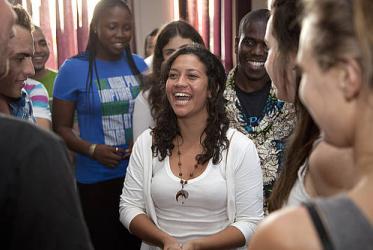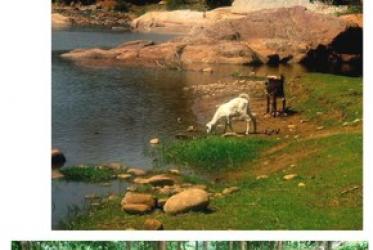Displaying 1 - 16 of 16
NIFEA group calls for reimagined global financial alternatives
21 September 2023
Water and justice at the WCC 11th Assembly
20 July 2022
WCC represented at International Sanitation Convention in India
18 October 2018
EWN observes World Toilet Day at a village in India
26 November 2012
Youth promise active involvement for environmental justice
14 December 2011
Helping water flow freely in Asia
16 December 2010









